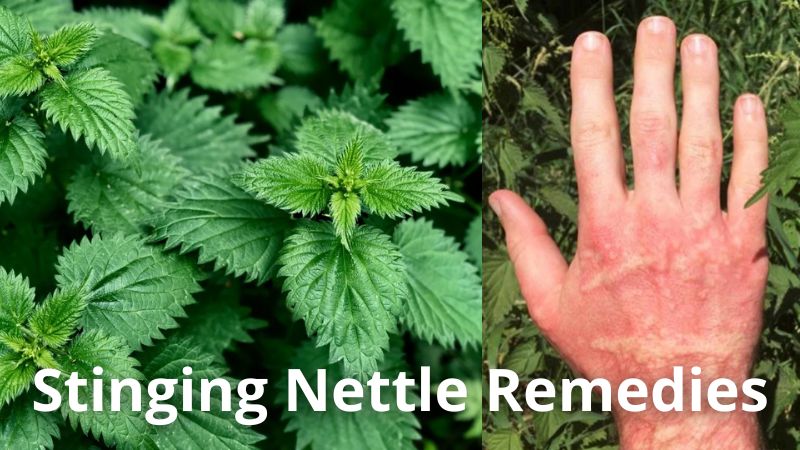Allergies are a common ailment affecting millions of people worldwide. They occur when the immune system overreacts to substances such as pollen, dust, or pet dander, causing symptoms like sneezing, itching, and congestion. While conventional medications can provide relief, many people seek natural remedies for allergies as an alternative or complementary approach. This article from Nabm explores various natural remedies for allergies, offering insights into how they can help alleviate symptoms.
Natural Remedies for Allergies
Local Honey
One popular natural remedy for allergies is consuming local honey. The theory behind this approach is that local honey contains small amounts of the pollen found in the area where you live. By consuming this honey regularly, your body may build up a tolerance to local pollen, reducing the severity of allergic reactions over time. While scientific evidence on the effectiveness of this method is mixed, many people report positive results. To try this remedy, simply add a teaspoon of local honey to your daily diet.

Nasal Irrigation
Nasal irrigation is another effective natural remedy for allergies. This method involves using a saline solution to flush out allergens and mucus from the nasal passages. A neti pot or nasal irrigation bottle can be used for this purpose. It’s crucial to use distilled, sterile, or previously boiled and cooled water to avoid infections. Regular nasal irrigation can help reduce nasal congestion, sneezing, and postnasal drip, providing relief from allergy symptoms.
Quercetin
Quercetin is a natural flavonoid found in many fruits and vegetables, such as apples, onions, and berries. It is known for its antioxidant and anti-inflammatory properties. Quercetin helps stabilize mast cells, which release histamine during an allergic reaction, thereby reducing symptoms. Quercetin supplements are available and can be an effective natural remedy for allergies. Including quercetin-rich foods in your diet can also be beneficial.
Butterbur
Butterbur is an herb that has gained attention as a natural remedy for allergies. Studies have shown that butterbur can act as an antihistamine, reducing symptoms such as nasal congestion, itchy eyes, and sneezing. Butterbur supplements are available in extract form, but it’s essential to choose products that are free from pyrrolizidine alkaloids (PAs), which can be harmful to the liver. Always consult with a healthcare provider before starting any new supplement.
Stinging Nettle
Stinging nettle is another herbal remedy that can help manage allergy symptoms. This plant contains natural antihistamines and anti-inflammatory compounds that can reduce allergic reactions. Stinging nettle can be consumed in various forms, including teas, capsules, and tinctures. Some people find that taking stinging nettle supplements helps alleviate symptoms such as sneezing, itching, and congestion.

Probiotics
Probiotics are beneficial bacteria that support gut health and may play a role in managing allergies. A healthy gut microbiome can help regulate the immune system and reduce the severity of allergic reactions. Probiotics can be found in fermented foods such as yogurt, kefir, sauerkraut, and kimchi, as well as in supplement form. Incorporating probiotics into your diet is a natural remedy for allergies that may help improve overall immune function.
Vitamin C
Vitamin C is well-known for its immune-boosting properties and is also a natural antihistamine. By reducing the amount of histamine released by the body, vitamin C can help alleviate allergy symptoms. Foods rich in vitamin C include citrus fruits, strawberries, bell peppers, and broccoli. Taking a daily vitamin C supplement can also be an effective natural remedy for allergies, helping to reduce symptoms and improve overall health.
Essential Oils
Essential oils such as peppermint, eucalyptus, and lavender can provide relief from allergy symptoms. These oils can help open nasal passages, reduce congestion, and soothe irritated airways. They can be used in a diffuser to disperse the aroma throughout a room or applied topically (diluted with a carrier oil) to the chest and temples. Using essential oils as a natural remedy for allergies can offer a pleasant and aromatic way to ease discomfort.
HEPA Filters
Using HEPA (High-Efficiency Particulate Air) filters in your home is one of practical natural remedies for allergies. These filters can trap airborne allergens such as pollen, dust mites, and pet dander, reducing their presence in your living environment. Placing HEPA filters in air purifiers, vacuum cleaners, and HVAC systems can significantly improve indoor air quality and help alleviate allergy symptoms.

Acupuncture
Acupuncture, a traditional Chinese medicine practice, has been shown to reduce the severity and frequency of allergic reactions. This natural remedy for allergies involves inserting thin needles into specific points on the body to balance the flow of energy (Qi) and enhance immune function. Some studies suggest that acupuncture can help modulate immune responses and decrease symptoms such as nasal congestion and itching. It’s essential to seek treatment from a licensed and experienced acupuncturist.
Dietary Adjustments
Making dietary adjustments can be a powerful natural remedy for allergies. Avoiding foods that trigger histamine release, such as alcohol, fermented foods, and certain cheeses, can help reduce symptoms. Incorporating anti-inflammatory foods like fatty fish, flaxseed, and turmeric can also be beneficial. These foods contain omega-3 fatty acids and other compounds that can help lower inflammation and improve immune function. By adjusting your diet, you can support your body in managing allergy symptoms more effectively.
Hydration
Staying well-hydrated is a simple yet effective natural remedy for allergies. Drinking plenty of water helps thin mucus, making it easier for the body to expel allergens and reduce congestion. Proper hydration also supports overall health and immune function. Aim to drink at least eight glasses of water daily, and consider increasing your intake during allergy season or when symptoms flare up.
Conclusion
Natural remedies for allergies offer a variety of ways to manage and reduce symptoms without relying solely on conventional medications. From local honey and nasal irrigation to quercetin and butterbur, these remedies can provide relief and improve quality of life for allergy sufferers. It’s essential to consult with a healthcare provider before starting any new treatment, especially if you have severe allergies or are taking other medications. By exploring and incorporating these natural remedies for allergies, you can find a combination of approaches that work best for you, helping to alleviate discomfort and enhance your well-being.